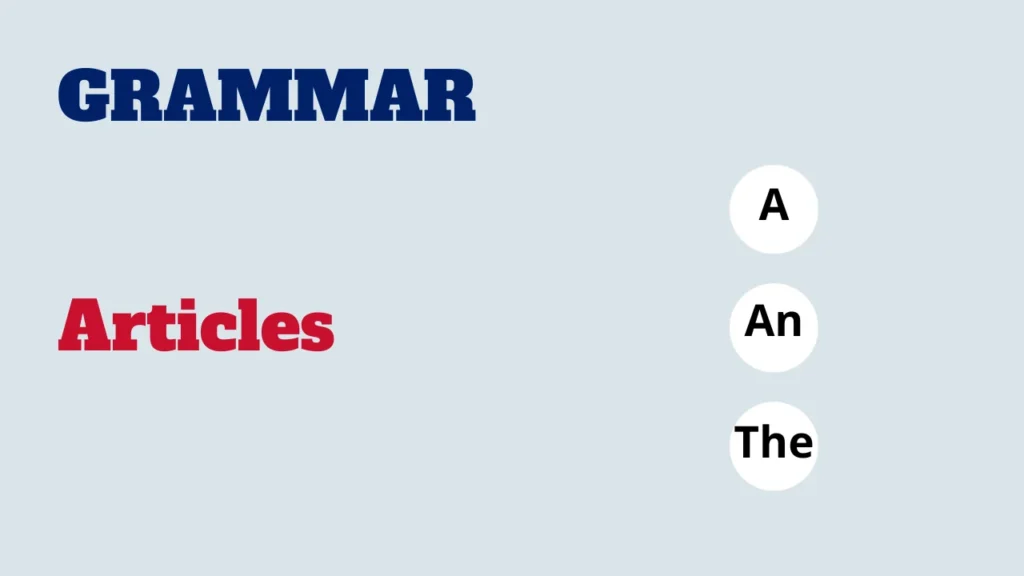Understanding the usage of articles is crucial for English learners to construct precise and grammatically correct sentences. Articles, including “a,” “an,” and “the,” play a significant role in conveying specific meanings and contexts.

In this grammar lesson, we’ll delve into the types of articles, their functions, and how to use them effectively in English sentences.
Types of articles:
1. Definite article – “The”:
“The” is a definite article used to refer to a particular person, place, thing, or idea that is already known or has been mentioned before. It helps in specifying the noun it precedes.
Example:
I saw a movie last night. The movie was fantastic.
2. Indefinite articles – “A” and “An”:
“A” and “An” are indefinite articles used when referring to a non-specific item or thing. “A” is used before words that begin with a consonant sound, while “an” is used before words that begin with a vowel sound.
Examples:
I saw a cat in the alley. ”a cat” (starts with /k/)
She bought an interesting book yesterday. ”an interesting” (starts with /i/)
NB: The choice of a or an depends on sound, not spelling.
NB: We do not use an indefinite article with plurals or uncountable nouns:
- He is wearing cool glasses. (plural noun)
- I have prepared rice for dinner. (uncountable noun)
Common mistakes to avoid:
1. Using “The” with Non-Specific Nouns: “The” should not be used with non-specific nouns. It is reserved for specific or previously mentioned items.
Incorrect: I need the advice on choosing a career.
Correct: I need advice on choosing a career.
2. Omitting “The” When referring to a unique item:
“The” is used when referring to a unique item, even if it’s the first mention.
Incorrect: Eiffel Tower is located in Paris.
Correct: The Eiffel Tower is located in Paris.
Mastering the use of articles contributes significantly to constructing clear and accurate English sentences. Keep practicing, and soon, the correct use of articles will become second nature, allowing you to communicate more effectively in English. Happy learning!



